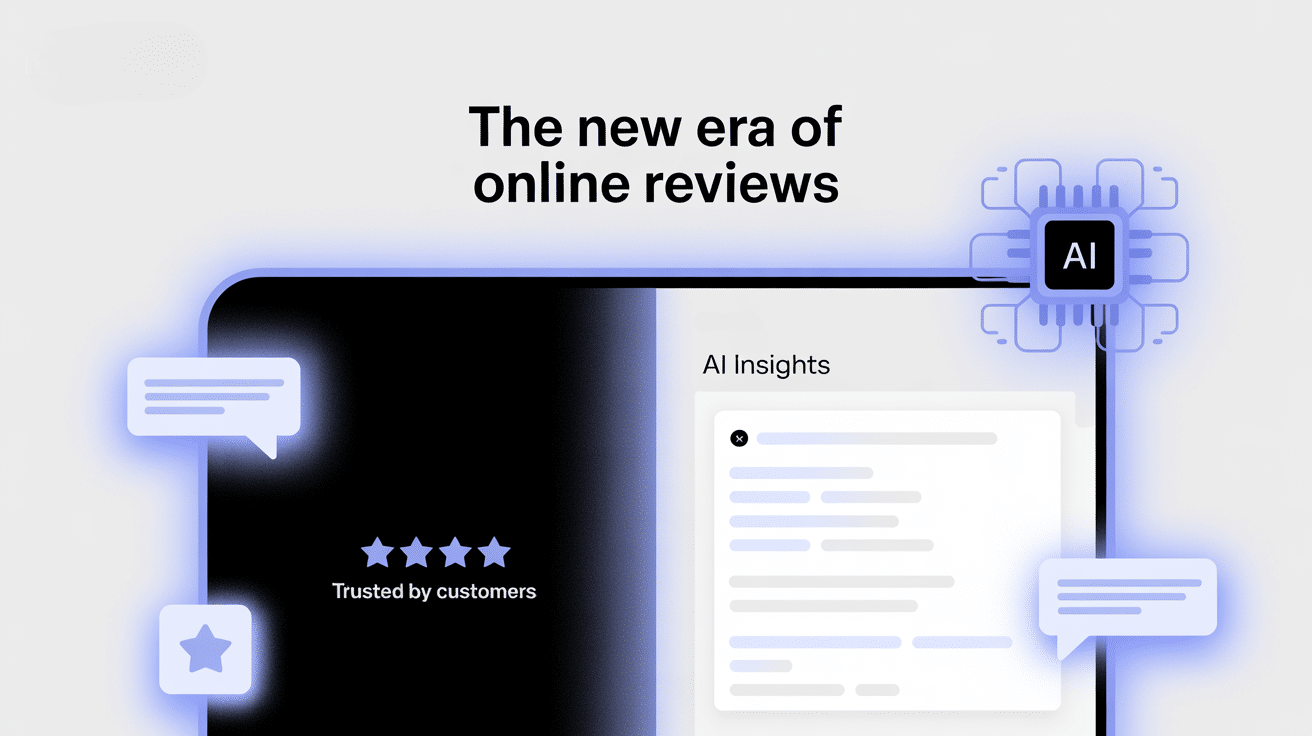In today's digital landscape, online reviews have undergone a remarkable transformation. Once primarily serving as trust signals to help potential customers make decisions, reviews now play a crucial role in how artificial intelligence understands and represents your business in search results. This evolution has profound implications for businesses looking to maintain visibility in an AI-driven search environment.
The Changing Role of Reviews
Traditionally, online reviews functioned as social proof—convincing potential customers that your business was trustworthy and worth their time. While this remains important, reviews have taken on an additional dimension: they've become training data for AI systems.
As noted by Claudia Tomina, a Google Business Profile expert specializing in reputation management, "Reviews are no longer just persuasive. They're data. They're content. And more importantly, they're shaping how AI systems understand your business."
This shift means businesses need to view reviews not just as ranking boosters or conversion tools, but as fundamental components of their content strategy. The language customers use in reviews directly influences how AI interprets and presents your business in search results.
How AI Search Processes Customer Queries
Modern AI search doesn't simply match keywords to web pages. Instead, it breaks down user queries into multiple "synthetic queries" to better understand user intent.
When someone searches for something like "Best cafes to work from,” AI doesn't just look for those exact words. It expands the query into multiple angles, including implicit assumptions perhaps “Quiet coffee shops with free Wi-Fi” (implicit: work requires internet and minimal noise), “Cafes with power outlets and comfy seating” (inferred: user plans to stay for extended periods), “Work-friendly cafes near me with strong coffee” (pattern: combines frequent phrases in work café searches).
This complex reasoning process means that ranking well requires more than traditional SEO tactics. It requires having content that helps AI connect various related concepts—and reviews excel at providing this kind of natural language data.
Why Reviews Have Become Essential AI Training Data
Reviews contain the authentic language of customers—precisely the kind of natural, varied phrasing that people use when searching. While your website might describe your restaurant as "Authentic Italian Cuisine in Downtown," a customer review might mention it's "perfect for a quiet date night with dim lighting and affordable pasta dishes."
This difference matters because, as Tomina explains, we're now "structuring content in a way that helps AI connect ideas and draw conclusions across multiple related searches—even ones that users haven't directly typed out." Reviews provide those connections naturally.
Reviews vs. Structured Data: Complementary Forces
While structured data like schema markup helps search engines understand specific attributes of your business, it has limitations:
- Structured data is predictable but limited - Schema markup clearly identifies data points like business hours or pricing, but it can't capture how people talk about their experiences.
- Reviews provide rich, unstructured language variety - They contain slang, emotional responses, and nuanced scenarios that structured data simply cannot represent.
- Reviews reveal unexpected use cases - Customers often highlight aspects of your business you might not have thought to feature, like a restaurant being "surprisingly quiet on weekday afternoons" or "a hidden gem for vegetarians."
How Google Is Evolving Review Collection
Google has recognized the value of reviews as AI training data and has evolved its review forms accordingly. Instead of just collecting ratings and comments, Google now prompts users for structured details about noise levels, average spending, seating options, dietary accommodations, and parking conditions.
This shift allows Google's AI to better understand specific attributes of businesses and match them to increasingly nuanced search queries, especially in AI Overviews and conversational searches.
Strategic Review Management for the AI Era
To leverage the power of reviews in this new landscape:
- Encourage specific, detailed reviews - Ask customers to share what they loved and why, using their natural language to describe their experience.
- Monitor descriptive patterns - Pay attention to how customers describe your business, as their language may help you rank for queries you never anticipated.
- Respond thoughtfully to reviews - Your responses add to the dataset that AI can potentially use to understand your business.
While there isn't definitive evidence that AI models are actively training on review responses yet, it's reasonable to assume these responses provide valuable natural language and contextual information that could help AI better understand businesses.
For example, if a customer mentions loving your outdoor patio and you respond that it's "open year-round with heaters in winter," this additional context could eventually help your business appear in searches for "heated patios near me."
Looking Forward
"We used to write for Google. Now we need to think about how our customers write about us," Tomina concludes. Reviews have evolved from simple social proof to become AI training data—perhaps the most valuable content your business has in an era where search is increasingly conversational.
In this new landscape, businesses that recognize the dual role of reviews—both as trust signals for consumers and as AI signals for search engines—will be better positioned to maintain visibility and relevance as search technology continues to evolve.
This article is based on insights from Claudia Tomina's June 2025 LinkedIn article "From Trust Signals to AI Signals: The Evolution of Online Reviews."



